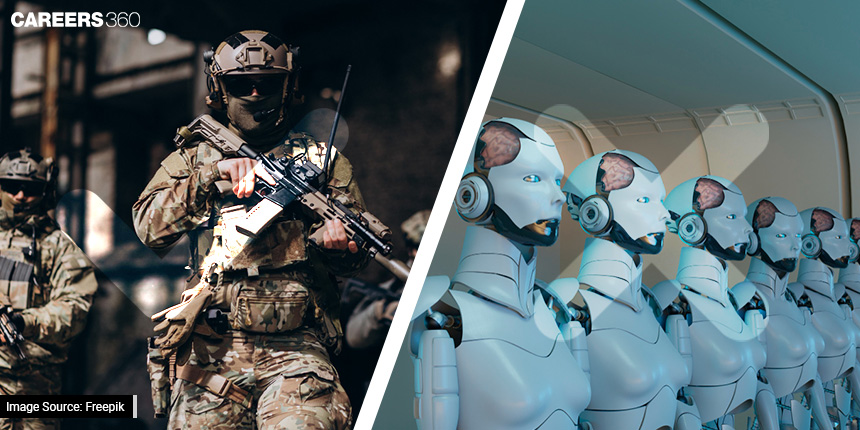Why Is Automation Not A Threat To The Defence Sector?
In the present age of rapid technological advancements and automation, there is a growing concern about the future of jobs and the role of humans in various sectors, including the defence services. While automation has transformed many industries, the idea that defence services can be fully automated remains a contentious topic.

Here, we explore the reasons why defence services can never be automated and why the human element will always be indispensable in matters of securing our borders.
Tough and Quick Decision-Making
One of the most important reasons why defence services can never be fully automated is the complexity of decision-making in military operations. War and conflicts are unpredictable and chaotic. They often require split-second decisions involving ethical, strategic, and tactical considerations. While AI has made significant advancements in decision support systems, it lacks the understanding of human emotions, ethics, and cultural sensitivities necessary for complex decision-making in situations like war, and various combat situations.
Human Trait
The use of force in military operations raises profound ethical questions that cannot be entrusted to machines alone. Decisions about target, collateral damage, the treatment of prisoners of war (POW), requires a deep understanding of international law, morality, and human rights. These decisions involve judgement, empathy, and a consideration of the consequences for civilians, which are aspects of decision-making that machines can’t be programmed to handle.
Dealing with Unforeseen Challenges
Warfare is constantly evolving, with new technologies, tactics, and strategies emerging regularly. Human soldiers have the capacity to adapt, learn, think, and take tactical decisions on the battlefield. They can devise innovative solutions to unforeseen challenges, a trait that machines, which operate based on pre-programmed algorithms, cannot replicate. Soldiers often are in situations where improvisation and ingenuity are the keys to survival and victory.
Psychological Factors
The psychological well-being of soldiers plays a crucial role in their effectiveness on the battlefield. Combat stress, fear, and the ability to cope with traumatic experiences are factors that require human intervention, understanding, and support. Soldiers need to rely on their fellow-soldiers, and commanders for emotional support, camaraderie, and a sense of purpose. These elements play a crucial role in maintaining morale and unit cohesion. Machines can’t be programmed or trained to inherit or inculcate psychological feelings and elements.
Human Judgment and Intuition
Human judgments and intuitions are often the result of years of training and experience. Army personnel develop a deep understanding of their environments, their enemies, and the dynamics of warfare through practical experience. These insights can’t be replicated by machines, which lack the ability to develop a gut feeling or make intuitive decisions based on nuanced information.
Cybersecurity Risks
As technology advances, so do the capabilities of cyber warfare. Automated defence systems are vulnerable to hacking and cyberattacks, which can potentially compromise the entire defence infrastructure. Human operators can employ critical thinking, adaptability, and a deep understanding of cybersecurity to respond to and prevent cyber threats more effectively than automated systems.
The Human Element
Last but not the least, the most crucial reason why defence services can never be fully automated is the human element itself. The military is not just about arms and ammunition, and strategy, it's about the people who serve. Soldiers are motivated by a sense of duty, patriotism, and a commitment to protecting their motherland. They demonstrate courage, sacrifice, and unwavering loyalty, qualities that are distinctly human and cannot be replicated by technology.
The complex nature of warfare, the need for ethical considerations, adaptability, creativity, psychological support, human judgement, and the intrinsic value of the human element, all contribute to the conclusion that defence services can never be fully automated. However, technology can complement human capabilities, and help the army in safeguarding their nations and maintaining global security.
Also Read | 5 Engineering Jobs That Will Never Be Automated
